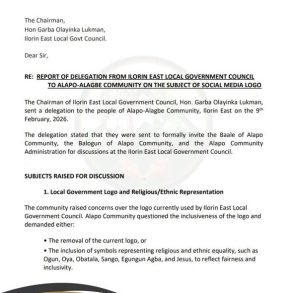9th July 2024
In a bid to reduce the high rate of child malnutrition, the Federal Ministry of Health and Social Services supported by the World Bank Group and Ondo State Ministry of Health have trained 60 participants on maternal infant and young child nutrition.
The training which will last for eight days kick-started in Akure, the state capital, on Tuesday.
Declaring the programme open, the Ondo State Commissioner for Health, Dr. Banji Ajaka, explained that good nutrition was important for every newborn especially in the first 1000 days because it would help build his or her immune system which would prevent the baby from disease and early death.
Ajaka revealed that though this was the first time the Federal Ministry of Health and the World Bank was supporting the state in training trainers, the state had been involved in such training from time to time and had planned to continue to avoid high rate of child mortality.
He said: “You will agree that it is important for a newborn to have a very good nutrition. After birth, the first 1000 days, that is about two to three years, the child needs adequate nutrition, it is important otherwise the immunity of the child will be very low, any disease can hit that child and death is up, and that contributes to child mortality in the country and then in the state.
“We have been doing this training from time to time, we have employed a lot of nutritionists and we are still employing, and we will continue to employ and train them. We don’t want any of our children to die because they didn’t have adequate or quality food.”
In his remarks, the Permanent Secretary, Ondo State Ministry of Health, Dr Adeniran Ikuomola, said the essence of the training was to train trainers that would go out and train people all across the state on food nutrition.
According to him, the 60 participants were stakeholders selected from various segments of society.
He noted that it was important that the knowledge of good nutrition should not be limited to health workers alone.
Speaking on the challenges of feeding on good nutrition in the current economic hardship in the country, Ikuomola explained that good nutrition did not require much money, but the ability to use the available resources to combine the necessary classes of food that would provide a balanced diet.
He said: “I think it’s a good thing for us to train the trainers so that we will be able to replicate the knowledge to every part of the state. We expect that the knowledge on nutrition should not be limited to just health workers, it should involve people who can replicate that idea, people who are involved in food production, food processing, and in everything nutrition. That is why we have brought together people from diverse markets.
“The essence of this training is to train the trainers, we will still step it down to other facilities. These people will go to secondary facilities like hospitals, and primary health care to train the officers that are working there.
“Good nutrition is not only limited to eating what is expensive, but eating what is right, the training will empower the trainers to have the knowledge that they will replicate to others to tell them that they don’t need to buy what is expensive, but bring together what is useful for them and their children to grow.”
Expressing his appreciation for the training, one of the participants, Omoniyi Olarewaju, described the training as a very laudable one and an opportunity for every participant to learn.
He said they were fully ready to acquire the knowledge and would be looking forward to distributing the knowledge so that everyone could benefit from what he or she had learned.






